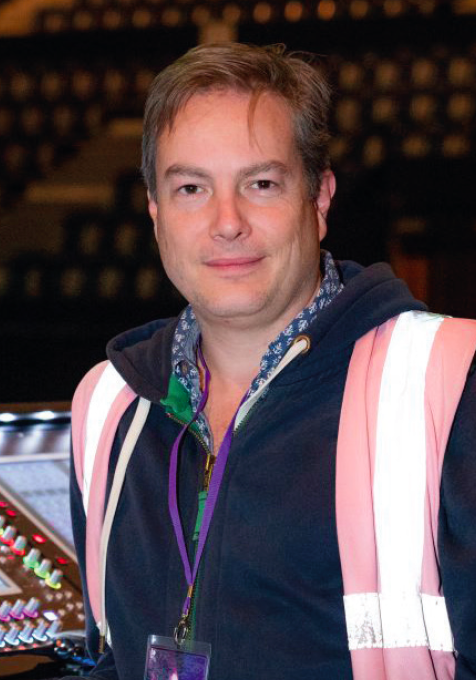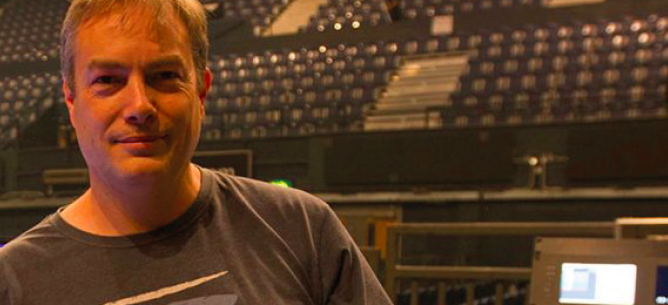Having worked on both The BRIT Awards and MTV’s European Music Awards, as well as being Hans Zimmer’s FOH engineer, Colin Pink’s sound design has truly been heard all over the world. Here he talks to Headliner about how he started off working in sound, and how he’s adapting to the digital era.
Coming from a musical theatre background, it’s rather curious that sound designer Colin Pink has now become one of the go-to audio people for big live events, not to mention his extensive work with one of the greatest film score composers of all time, Hans Zimmer.
It was all the way back during his school years however that Pink first got into sound, passionate about the technical aspects of theatre and performance from a young age.
After graduating from the Guildhall School of Music and Drama and working in a few regional theatres, he found himself at The National in London, where he worked his way up to sound supervisor:
“We did quite a few musicals, which is an invaluable experience obviously from a show mixing point of view,” reveals Pink. “There was lots of time spent mixing and playing around with how to make a band sound nice.”
It was here working with 24-piece orchestras that helped Pink to hone his craft. He soon ended up running audio in The Olivia, a 1,200 seat amphitheatre with an interesting acoustic character, and one of The National’s three stages where most of the big musicals are performed. He held this position for around a decade, learning theatre sound design extensively before turning freelance:
“Sound in musical theatre is very complex, simply because you’ve got so many points of reference,” Pink explains. “It’s all about time aligning microphones to be moving around on stage, keeping the image working so that the audience actually believes in the actors.
"I always say if you can see or hear what the microphones are doing on a theatre show, the actors might as well stop acting, because as an audience member you have to believe what’s going on.”



